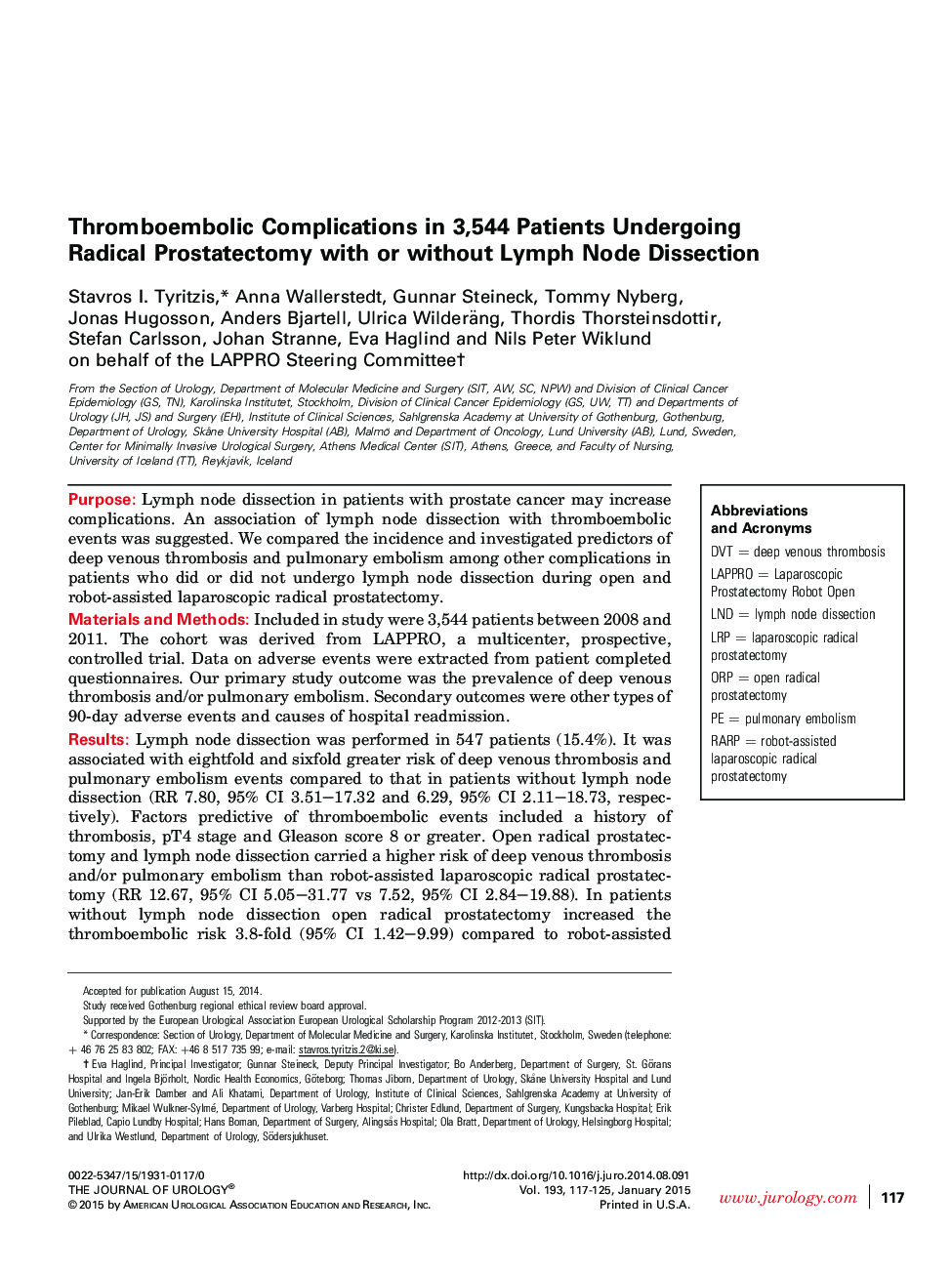| کد مقاله | کد نشریه | سال انتشار | مقاله انگلیسی | نسخه تمام متن |
|---|---|---|---|---|
| 3859796 | 1598896 | 2015 | 9 صفحه PDF | دانلود رایگان |
PurposeLymph node dissection in patients with prostate cancer may increase complications. An association of lymph node dissection with thromboembolic events was suggested. We compared the incidence and investigated predictors of deep venous thrombosis and pulmonary embolism among other complications in patients who did or did not undergo lymph node dissection during open and robot-assisted laparoscopic radical prostatectomy.Materials and MethodsIncluded in study were 3,544 patients between 2008 and 2011. The cohort was derived from LAPPRO, a multicenter, prospective, controlled trial. Data on adverse events were extracted from patient completed questionnaires. Our primary study outcome was the prevalence of deep venous thrombosis and/or pulmonary embolism. Secondary outcomes were other types of 90-day adverse events and causes of hospital readmission.ResultsLymph node dissection was performed in 547 patients (15.4%). It was associated with eightfold and sixfold greater risk of deep venous thrombosis and pulmonary embolism events compared to that in patients without lymph node dissection (RR 7.80, 95% CI 3.51–17.32 and 6.29, 95% CI 2.11–18.73, respectively). Factors predictive of thromboembolic events included a history of thrombosis, pT4 stage and Gleason score 8 or greater. Open radical prostatectomy and lymph node dissection carried a higher risk of deep venous thrombosis and/or pulmonary embolism than robot-assisted laparoscopic radical prostatectomy (RR 12.67, 95% CI 5.05–31.77 vs 7.52, 95% CI 2.84–19.88). In patients without lymph node dissection open radical prostatectomy increased the thromboembolic risk 3.8-fold (95% CI 1.42–9.99) compared to robot-assisted laparoscopic radical prostatectomy. Lymph node dissection induced more wound, respiratory, cardiovascular and neuromusculoskeletal events. It also caused more readmissions than no lymph node dissection (14.6% vs 6.3%).ConclusionsAmong other adverse events we found that lymph node dissection during radical prostatectomy increased the incidence of deep venous thrombosis and pulmonary embolism. Open surgery increased the risks more than robot-assisted surgery. This was most prominent in patients who were not treated with lymph node dissection.
Journal: The Journal of Urology - Volume 193, Issue 1, January 2015, Pages 117–125
